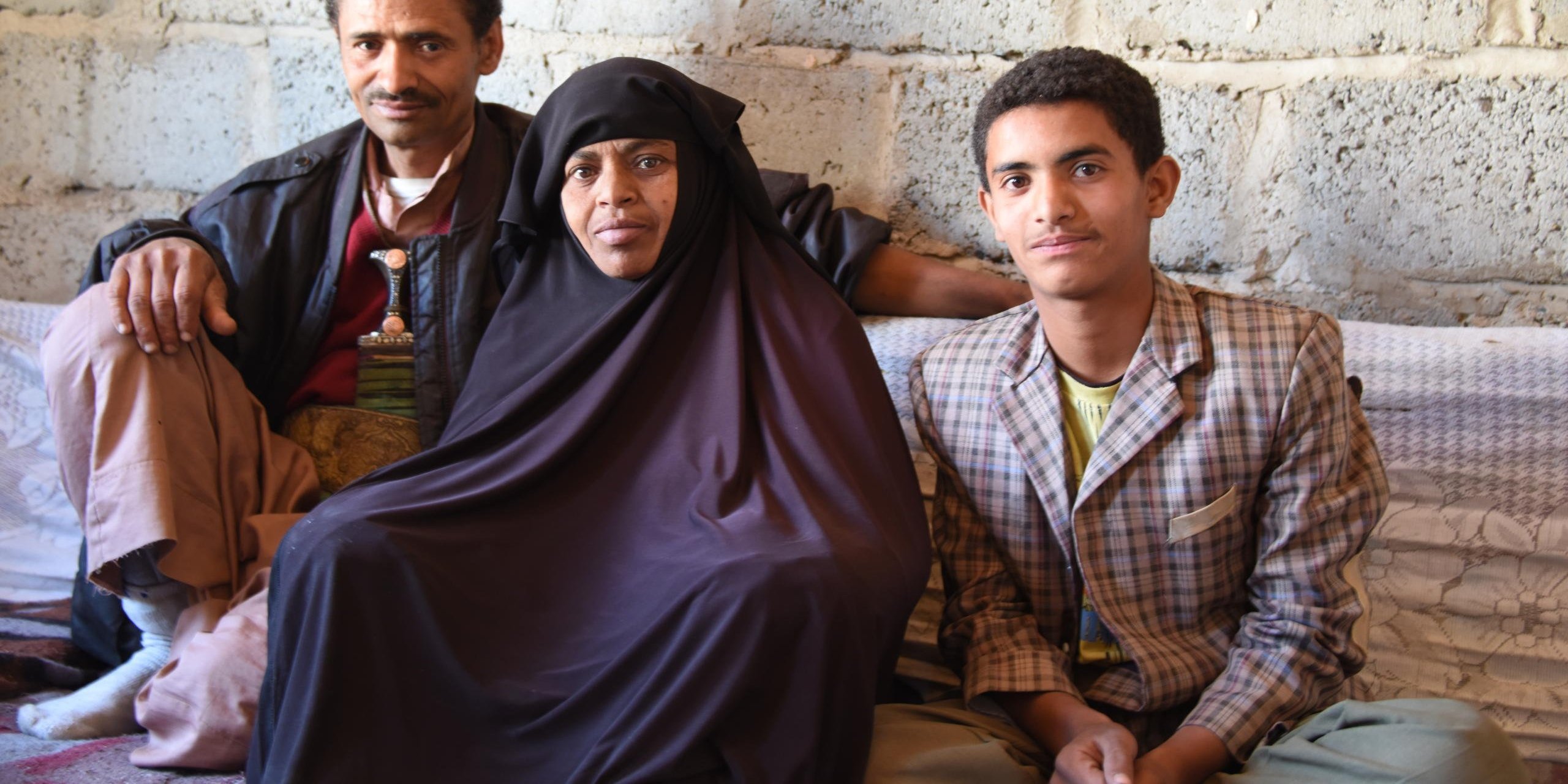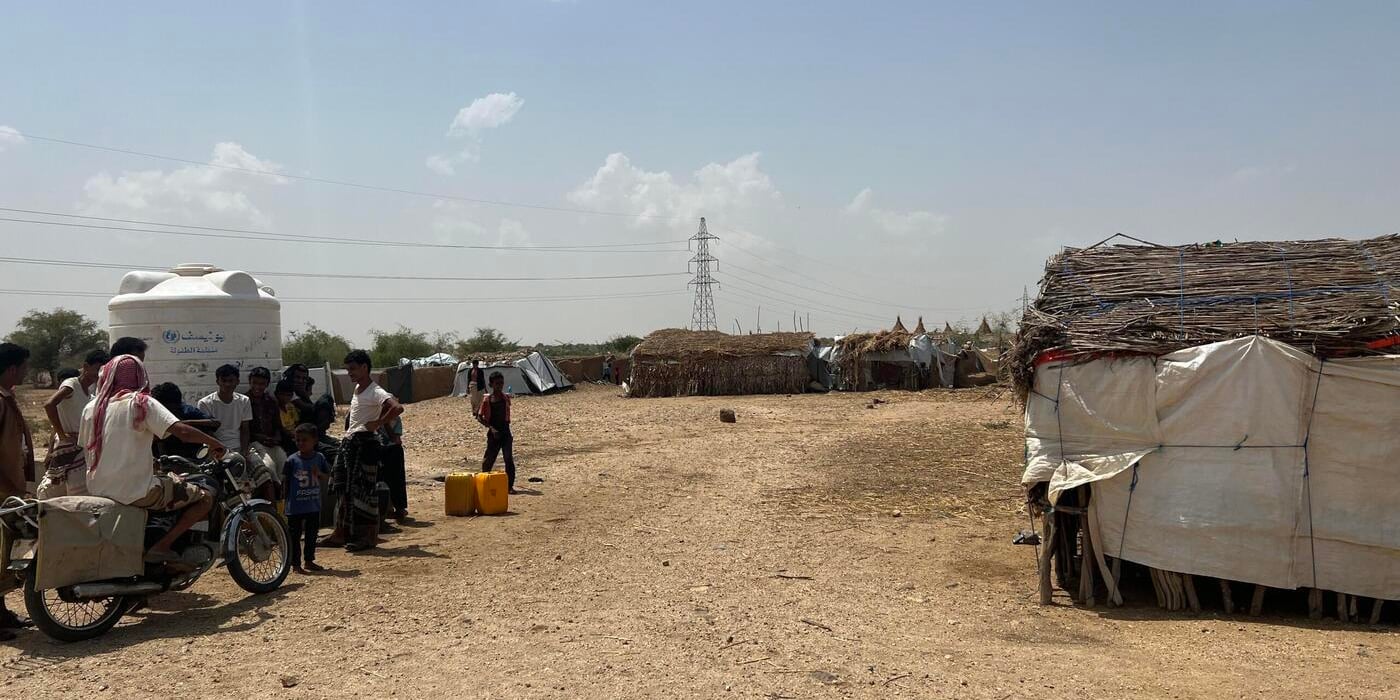
“Here in Nuqm it was hell. All of Sana'a was being bombed. I was with my son Mohammed at the gas distribution point and planes were bombing the area. The planes were bombing everywhere,” says Mahmoud.
Deep in crisis
Life in Yemen was already very difficult before the escalation in the fighting last year, as the country was crippled by underdevelopment, malnourishment, a financial crisis, and widespread poverty. But the situation for Yemeni civilians has gotten much worse in the past year.
Increased fighting and attacks on civilian and economic infrastructure have caused loss of life, the collapse of basic social services and a virtual halt of the economy. Up to 50 per cent of people living in the areas directly affected by the conflict have had their livelihoods destroyed.
With no jobs, no money, but still having to pay off debt and expenses, people are going through vicious cycles of poverty. Mahmoud has seen his life deteriorating like never before in the last 12 months.
"Before the war I worked as a tailor,” he says. “After the war I lost my job. Because of the electricity situation and the lack of money in people's pockets, there's no movement, it's as if life has stopped.”
A staggering 14.4 million people struggle for food in Yemen, and 7.6 million are extremely food insecure, going to bed hungry almost every night.
“This is all caused by the war,” Mahmoud says. “We have to survive. There is no food, no spending money like there used to be, we get a plate or two of food and get on with it.”
To help civilians in need, the Norwegian Refugee Council is distributing food aid in a project funded by the World Food Programme. As of last December , 218,504 individuals had benefitted from food distribution and cash transfers to buy basic goods like food, water and medicines.
Back home
Mahmoud, Sabha and their children had to flee their home as their neighbourhood was shaken by air strikes. They were displaced in a school for months. Returning home was a relief followed by the devastating realisation they had lost everything.
“We came back home and we were happy to be back, one rests when he's back home,” Sabha said. “But I had a lot of cleaning to do. A lot of repairs, so many things were damaged.
“It was as if the world was turned upside down. Our house was damaged by all the blast of the explosions. Our windows were gone, our furniture, the television was gone, the roof had been damaged, and all the glass had been broken.” Mahmoud adds, as he holds his wife and comforts her.
Mahmoud and Sabha had a house to go back to, even if damaged. Many of the refugees who fled their homes in Yemen found only rubble upon their return. NRC provides shelter for families who have lost their homes.
Our aim is to support internally displaced people and returnees through the construction of temporary shelters, rehabilitation of damaged homes and provision of emergency materials. In 2015 NRC helped 40,726 people with emergency shelter.
Hoping for a better future
“I have five daughters and one son,” Mahmoud said. “In this situation, what kind of future can we talk about? A future for children? It's all bleak. This blots out the future of millions of children as regards their health, education, and nutrition. If this conflict goes on it's a future of blood and darkness."
NRC in Yemen
In 2015, we provided aid to over 341,000 people in Yemen. This year our goal is to expand water and shelter assistance, food programmes, and launch education programmes. Already we have provided assistance to more than 305,000 people, but the needs are immense.
We can only to help people like Mahmoud and Sabha to survive—the only solution is a permanent ceasefire and long-lasting peace. World leaders and the warring parties are responsible to make sure Mahmoud and millions of innocent Yemenis get the future they deserve, not the one they so much fear.
Photo and story collected by Karl Schembri/NRC


